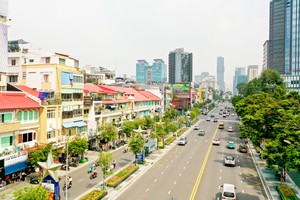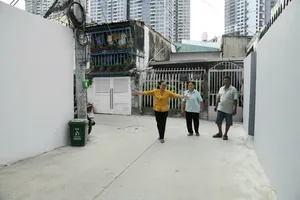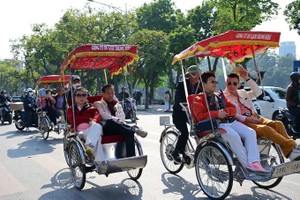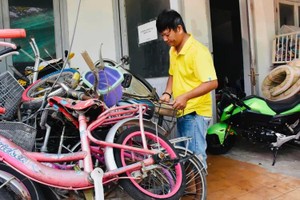However, it is important to note that the Prime Minister’s Directive No. 20/CT-TTg, which addresses various urgent tasks and decisions to combat environmental pollution, does not impose any financial obligation on individuals to transition to electric motorbikes.
Public forums have seen robust debates on the feasibility of this transition. Key concerns include whether residents are prepared to adopt electric vehicles, whether the current infrastructure of charging stations can support millions of electric motorbikes simultaneously, and the potential risks associated with fire hazards, battery replacement costs, and post-use battery disposal. These issues remain unresolved and are the subject of ongoing discussions.
Amid these challenges, a cost-effective and environmentally sustainable alternative, deeply rooted in Vietnam’s urban heritage, has been largely overlooked in policy discussions: the bicycle. Approximately 25–30 years ago, bicycles were a ubiquitous sight in Hanoi, used by residents for commuting to school, work, or leisurely activities, embodying a simple and community-oriented lifestyle. As economic development progressed, motor vehicles gradually supplanted bicycles. However, with growing concerns over environmental degradation and urban traffic congestion, revitalizing the culture of cycling offers not only a nostalgic nod to the past but also a practical and forward-looking solution to Hanoi’s current challenges.
In developed nations, where average incomes rank among the highest globally, such as the Netherlands, Belgium, or Denmark, the decision to utilize a bicycle is not due to an inability to purchase an umbrella or an electric motorbike. Rather, it stems from the establishment of a stable and enduring cycling culture by their government. It is noteworthy that the former Dutch Prime Minister Mark Rutte continues to cycle daily to the Prime Minister's Office, creating a compelling and motivational media image that transcends all propaganda slogans.
The advantages of cycling are widely recognized: physical exercise, environmental conservation, and particularly, the investment cost is significantly lower than that of electric vehicles. While an electric vehicle may cost several million Vietnamese dong, a quality bicycle is priced at approximately VND1 million. This substantial difference alleviates the financial burden on workers and students, who are the most affected groups if they are compelled to transition to more convenient modes of transportation in a short time frame.
To promote confidence in bicycle riding, it is essential to implement various supportive policies such as establishing dedicated lanes, ensuring safe zones, offering public bicycle options similar to those in Ho Chi Minh City, Hanoi, or Da Nang, facilitating smoke-free days and encouraging cycling to work. All activities should have participation of senior leaders to advocate for this new lifestyle. Rather than solely concentrating on the transition to electric vehicles, it is crucial to broaden the discussion platform, assist in altering perceptions and traffic behaviors, and create space for bicycles—a solution that, while not novel, remains perpetually relevant.
























